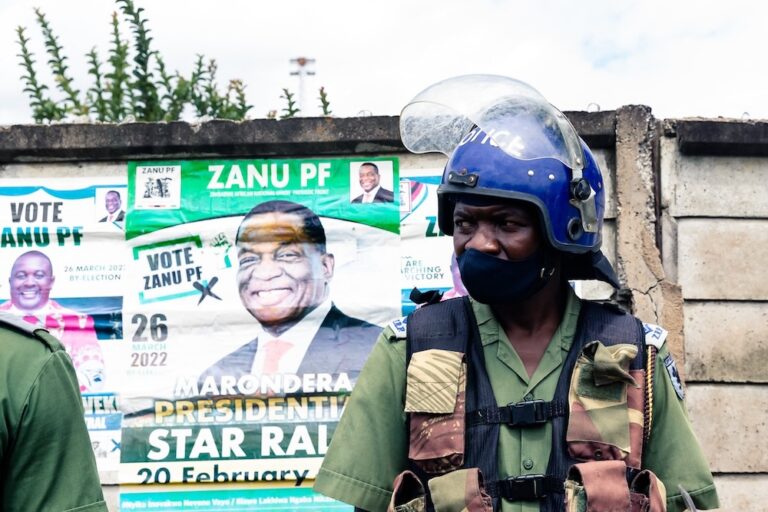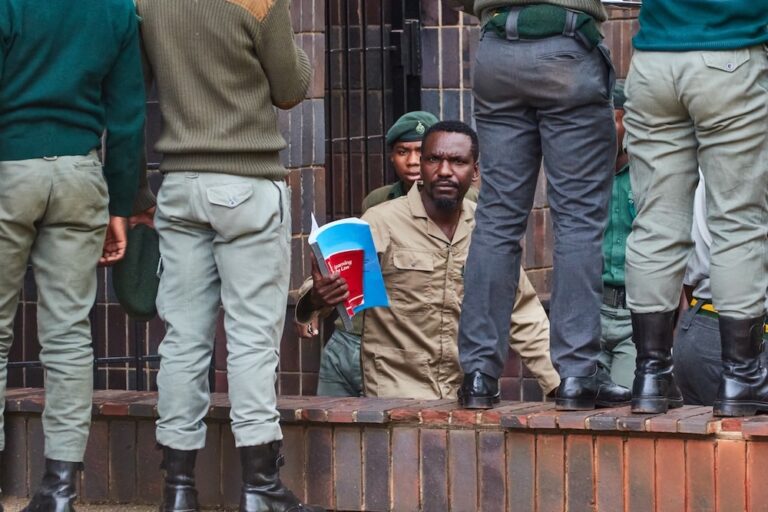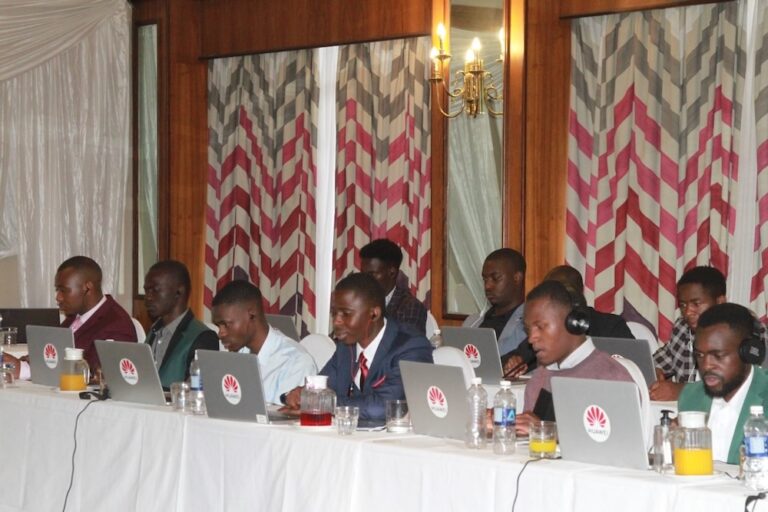(WiPC/IFEX) – WiPC protests the continuing detention of freelance journalist and internet writer Frank Chikowore, who was charged with “public violence” on 21 April 2008, almost a week after his arrest. He has reportedly been denied medical treatment while in detention. The WiPC also remains seriously concerned about a number of other attacks against print […]
(WiPC/IFEX) – WiPC protests the continuing detention of freelance journalist and internet writer Frank Chikowore, who was charged with “public violence” on 21 April 2008, almost a week after his arrest. He has reportedly been denied medical treatment while in detention. The WiPC also remains seriously concerned about a number of other attacks against print journalists in Zimbabwe in the wake of the contested March 2008 elections. Freelancer Stanley Karombo was detained incommunicado for three days before being released on 21 April. Three foreign correspondents were also detained and put on trial this month. The WiPC fears that these journalists are being targeted for their reporting on the recent elections, in violation of their right to freedom of expression. It is calling on the authorities to substantiate the charges against Chikowore, and to allow him access to medical and legal assistance and bail provision, or alternatively to release him immediately and unconditionally.
Frank Chikowore (28), freelance journalist for publications including the private weekly “The Standard”, who also runs a popular blog covering the 2008 elections, has been detained since 15 April 2006. That day, Chikowore reportedly went to cover a strike called by the opposition party Movement for Democratic Change (MDC) to demand the release of the 29 March election results. He was arrested along with around 15 other people, said to be MDC supporters. Chikowore was then brought home by the police, who searched his home without a warrant and confiscated his equipment before taking him to an unknown location. Although the police initially denied holding the journalist, he was later discovered at Harare Central Police Station. Chikowore’s lawyer and wife were not allowed to see him until 16 April.
On 17 April, Chikowore’s lawyer filed an urgent High Court application to have the journalist taken to hospital due to abdominal and chest pains, but to date he has yet to receive the required treatment.
On 21 April, six days after his arrest, Chikowore was finally charged with “public violence”, in relation to the burning of a bus on the morning of 15 April. Under Zimbabwean law, individuals should be charged within 48 hours of their arrest. The police had previously made a number of other accusations, including reporting without accreditation (dropped when it was discovered that he is accredited by both the Media and Information Commission and the Zimbabwe Electoral Commission), arson and attempted murder. There are concerns that the current charges may have been fabricated. On 22 April, Chikowore was remanded in custody, reportedly until 5 May.
Stanley Karombo, freelance journalist for Spanish news agency EFE, among others, was detained incommunicado for three days. He reportedly went missing on 18 April during celebrations for the 28th anniversary of Zimbabwe’s independence at Gwanzuru stadium in Harare. According to the Zimbabwean Union of Journalists (ZUJ), the police repeatedly denied any knowledge of Karombo and his whereabouts; however, he was subsequently found at Harare Central police station. Karombo was reportedly released on 21 April; it is not known whether or not he had been charged.
Meanwhile, three foreign print journalists have been subjected to week-long detentions and trials this month before returning home. “New York Times” correspondent Barry Berak and contributor to the UK newspaper “Daily Telegraph” Stephan Bevan were detained for five days from 3 April and were accused of covering the elections without accreditation. Both men reportedly had to receive medical treatment on their release. On 16 April they were acquitted of all charges on lack of evidence and returned to South Africa, where they are based. The same day, correspondent for UK newspaper “The Times” Jonathan Clayton was sentenced to a 20 billion Zimbabwean dollar fine (approx. 150 euros) or six months in prison for allegedly telling immigration officials he was a tourist rather than a journalist. Clayton reportedly appeared in court wearing leg irons after having been detained for a week. He was subsequently deported to South Africa.
April has seen a number of other attacks against broadcast journalists and other media workers as part of a wider post-election crackdown in Zimbabwe. According to an 18 April report by Amnesty International, at least one person has died and more than 240 people have been injured as a result of state-sponsored violence following the elections. (. . .)


